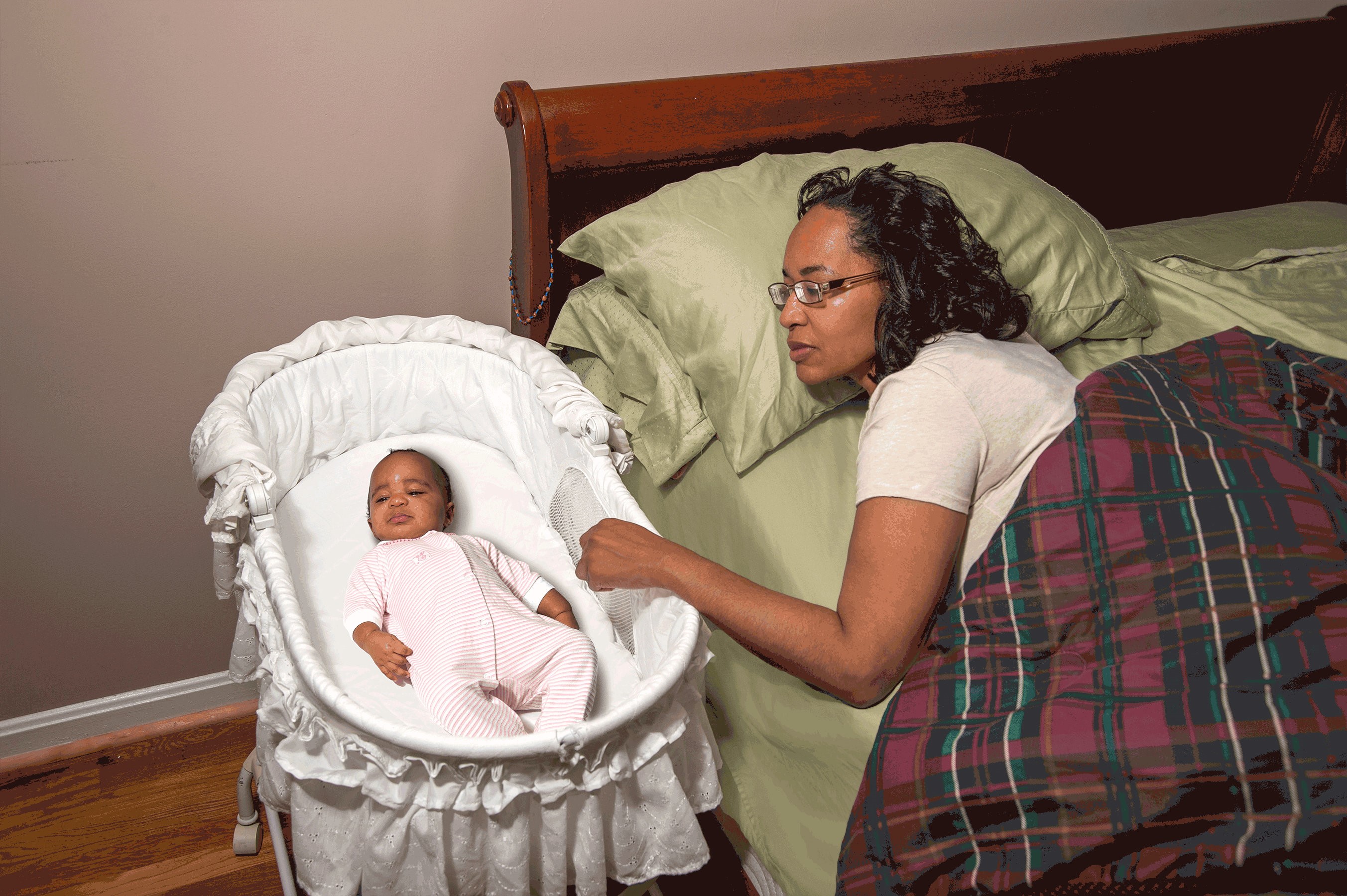It's a New Day in Public Health.
The Florida Department of Health works to protect, promote, and improve the health of all people in Florida through integrated state, county, and community efforts.
Follow the ABCs of Safe Sleep
October 09, 2017
Sudden Infant Death Syndrome (SIDS) is one of three types of sudden unexpected infant death (SUID). Other types of SUID include accidental suffocation and strangulation in bed and unknown cause. SIDS involves the sudden death of an infant less than 1 year of age that cannot be explained after a thorough investigation is conducted, including a complete autopsy, examination of the death scene, and a review of the clinical history.
In 2016 in Duval County:
- 111 infants died before their first birthday.
- Black infants were almost three times more likely to die before their first birthday than white infants.
- The majority of infant deaths were due to SUID (19.1%), prematurity/low birth weight (18.5%), and birth defect (13.5%).
There are actions that parents and caregivers can take to help reduce the risk of SIDS and other sleep-related causes of infant death, including suffocation:
- Always place babies on their backs to sleep for naps and night time sleep.
- Use a firm sleep surface, such as a mattress in a safety-approved crib, covered by a fitted sheet.
- Have the baby share your room, not your bed. Your baby should not sleep in an adult bed, on a couch, or on a chair alone, with you, or with anyone else.
- Room sharing (not bed sharing) decreases the risk of SIDS by as much as 50%.
- Keep soft objects, such as pillows and loose bedding out of your baby’s sleep area.
- Avoid the use of prescription pain medications or drugs.
- Do not smoke during pregnancy, and do not smoke or allow smoking around your baby.
- For help in quitting tobacco your way, call 877-U-CAN-NOW (877-822-6669) or log onto tobaccofreeflorida.com
Reference: www.cdc.gov

Additional Important Tips to Reduce the Risk of SIDS
- Breastfeed as much and for as long as you can. The American Academy of Pediatrics (AAP) recommends breastfeeding as the sole source of nutrition for your baby for about 6 months. When you add solid foods to your baby's diet, continue breastfeeding until at least 12 months. You can continue to breastfeed after 12 months if you and your baby desire.
- Schedule and go to all well-child visits. Your baby will receive important immunizations. Recent evidence suggests that immunizations may have a protective effect against SIDS.
- Do not let your baby get too hot.
- Keep the room where your baby sleeps at a comfortable temperature.
- In general, dress your baby in no more than one extra layer than you would wear. Your baby may be too hot if she is sweating or if her chest feels hot.
- If you are worried that your baby is cold, use a wearable blanket, such as a sleeping sack, or warm sleeper that is the right size for your baby. These are made to cover the body and not the head.
- Offer a pacifier at nap time and bedtime. If you are breastfeeding, wait until breastfeeding is going well before offering a pacifier. This usually takes 3 to 4 weeks.
- If the pacifier falls out after your baby falls asleep, you don't have to put it back in.
- Do not use pacifiers that attach to infant clothing.
- Do not use pacifiers that are attached to objects, such as stuffed toys and other items that may be a suffocation or choking risk.
Remember Tummy Time!
Give your baby plenty of "tummy time" when she is awake.This will help strengthen neck muscles and help prevent flat spots on her head. Always stay with her during tummy time (to make sure she remains awake).Reference: https://www.healthychildren.org/english/ages-stages/baby/sleep/pages/Preventing-SIDS.aspx
Infant Sleep Nuggets of Wisdom
- "Good sleeper" - a baby that is a good sleeper wakes periodically and can go back to sleep on his or her own. A good sleeper is not an infant that will sleep for long periods of time without waking up.
- Stomach sleeping causes younger infants to sleep more deeply, and in some babies, this keeps some of them from waking up when their oxygen levels get too low. Placing babies on their backs for sleep, instead of their stomachs, helps them to wake up easier.





Connect with DOH